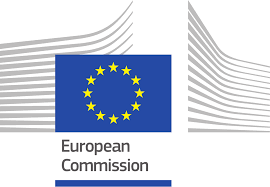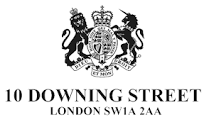PRESS RELEASE : Competition – Eurobarometer surveys show strong support among EU citizens and SMEs for competition policy [October 2022]
The press release issued by the European Commission on 25 October 2022.
Today, the European Commission has published the 2022 Eurobarometer surveys dedicated to EU competition policy. The surveys show strong support among citizens and Small and Medium Enterprises (‘SMEs’) for both competition policy and its enforcement.
Executive Vice-President Margrethe Vestager, in charge of competition policy, said: “The results from the survey are clear: competition improves the daily life of citizens and SMEs, bringing better prices, more choice and increased innovation. This support is consistent across the EU, and it is a reminder that fair competition is as important as ever.”
Main findings
The Eurobarometer surveys published today show that Europeans support the main goals of competition policy, recognising its important contribution to the European economy. In particular, respondents confirmed that in their view competition policy:
- encourages innovation (82% of citizens and 89% of SMEs);
- allows for better prices (74% of citizens and 81% of SMEs) and more choice (83% of citizens and 84% of SMEs);
- helps EU companies become more competitive on global markets (72% of citizens and 73% of SMEs).
The vast majority of citizens and SMEs participating to the survey strongly support different measures to improve competition even further. They believe that competition has a key role to prevent players across market sectors from abusing their market power (87% of citizens and SMEs) and to fight cartels (84% of citizens and SMEs). 76% of citizen’s and 73% of SMEs believe it is important to prevent mergers and acquisitions that reduce competition. Finally, Europeans think it is important to take advantages away from competitors subsidised by non-EU governments (70% of citizens and 74% of SMEs) and by EU governments (69% of citizens and 73% of SMEs).
A majority of respondents recognise competition policy and its enforcement as a key tool in facing the challenges ahead. As an example, 66 per cent of SMEs agree that regulation, such as the Digital Markets Act, can be an effective solution in markets with systemic issues. For what concerns the achievement of the Commission’s policy priorities, a majority of citizens believe that competition encourages the digital transformation of the economy and society (73%), as well as the offer of more environmentally friendly goods and services in the EU Single Market (54%).
For what concerns citizens, more than 50 per cent (54%) have experienced issues caused by a lack of competition, such as higher prices, less choice or lower quality. When asked about the areas in which they believe competition enforcement should play an even stronger role, citizens expressed their concerns for the lack of competition in the energy sector (27%), followed by food retailing (20%). In the last Eurobarometer survey, published in 2019, telecommunications and Internet access were at the top of citizens’ concerns (26%), while today only 18% of respondents have identified this as an area in which competition should be improved.
When asked about the competition-related difficulties experienced, SMEs mentioned high prices (57%), as well as powerful suppliers and buyers being able to impose unfair conditions (experienced by respectively 57% and 42% of respondents). For what concerns specific sectors, SMEs expressed their view that stronger competition in the provision of raw materials (12%) would be of the essence, as well as in the provision of energy (8%) and in the use of digital platforms to reach customers (8%).
European citizens and SMEs stay on top of the news concerning competition enforcement mostly through newspapers (including online) (52% of citizens and 51% of SMEs) and TV (48% of citizens and 41% of SMEs). However, social media has proven to be an increasingly relevant source of information for citizens on competition (rising from 24% in 2019 to 39% in 2022), as well as for SMEs (37% in 2022).



